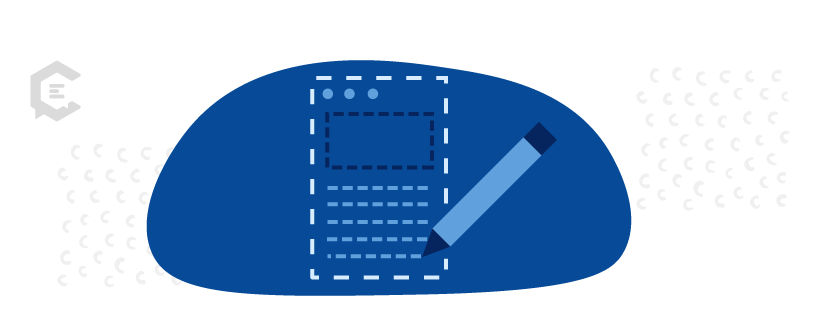Ever wondered what freelance writers expect to happen during collaboration with clients? Are writer guidelines enough? How much feedback do they expect? Is it OK to send articles back for revisions?
Don’t stress — working with freelancers should be a seamless (and rewarding) process — but it helps if you know what to expect.
8 tips for working with freelancers
Whether you’re a solopreneur who wants help getting your blog off the ground or you work for a brand that needs a team of freelancers to handle a big content initiative, these tips will ensure things go off without a hitch.
1. Provide clear guidelines and instructions
When working with freelancers, cover the basics, even if it’s common knowledge for you. It’s handy to have everything available in an online reference document that can be browsed easily, such as a Google doc.
You’ll want to include brand and editorial style guidelines (including if you use AP Style or Chicago, and any in-house rules), formatting guidelines, voice and tone information, and anything else the writer will need to do their job well.
You’ll also want to give your freelance writers the following documents and information:
- Buyer personas. These character sketches are helpful for writers because they give personality traits and demographic information on the people they’re trying to reach.
- The site where the content they’re producing will be published. If it’s a new site that hasn’t launched yet, say that and include a proposed launch date.
- Links to sample articles that rock. Some can be from the site where the content will be published, and others can just be pieces your company likes. These help a writer get to know the style and tone that’s preferred.
2. State communication preferences
On day one, discuss preferred methods of contact, including email, platform messengers, text messaging, or social media. What is the best way to reach you during the workday? Do you respond to weekend messages?
Lots of freelance writers hunker down at their laptops on Saturdays and Sundays. Can they contact you if they have questions, or do you prefer they wait until Monday morning?
Do you want writers to check in with you during the content creation process if they have questions, or should this be directed to a copyediting team? Outline a list of the team members on the project to cut down on misdirected messages. Be upfront about what you want — and don’t want — to ensure a happy and productive working relationship for all.
3. Outline expectations for freelance assignments
Next, explain how assignments will be completed so writers know if they need to pitch topics or if you’ll assign them based on specialty or preference.
When working with freelancers, you’ll want to know the answers to the following questions:
- Will I require pitches?
- Will I create assignments to be claimed?
- Will I assign specific topics to individual writers?
- Or will I offer a mix of all three approaches?
In a writer’s eyes, pitches are seen as potential income (no guarantees), while assignments are more likely to create a stable paycheck.
4. Demonstrate your process
Whether you want to handle the revision process by email, shared Google docs, an agency platform, or a content marketing platform, include a tutorial or offer to do a quick walk-through using a shared screen. You don’t want your writer to feel lost before they’ve even started.
5. Provide an overview of the content creation process
Next, give them an overview of the content creation process to put the project into perspective. Let them know if they are writing something as part of a campaign, product launch, static web page, or blog. Give them a timeline and show where their contribution fits in.
When working with freelancers, it’s helpful if you let them know the deadlines as early as possible and how much time has been allotted for revisions. This makes scheduling so much easier for a freelance writer.
Remember, your project probably isn’t the only one the writer is working on at the moment. Successful freelancers juggle multiple clients daily. Make your interaction with them helpful and detailed — it means a more efficient workflow for both of you.
6. Discuss payment details
Your introduction should also include details about payments. If your company has a separate accounting firm that issues payments, let the writer know which one and the contact person’s name. Then go over what information the company requires. If payments are handled internally, simply share a name and email.
Let your writer know:
- If you require an invoice
- If you need a PO number or special wording (dates, campaign names, titles of articles) on each invoice
- How often the pay cycle is (monthly, weekly, on receipt of an assignment?)
7. Assign the work with clear due dates and expectations
Assign the work to the writer. This should be in writing and clearly define due dates for initial drafts and how long the writer will have to do revisions. If you know the proposed publish date, include that too.
Let the writer know if their byline will be used too or if they’re ghostwriting, so you’re both on the same page.
After the writer turns in their copy, communicate with them. Tell them if it will take a few weeks to complete edits and get approvals from the client’s legal team. When working with freelancers, communication and feedback are critical. Include constructive feedback on how the writer could improve moving forward and specific things they did well.
8. Encourage them to share their work
So, you’ve helped the writer get rolling, they’ve submitted copy, worked through revisions, and the higher-ups gave you the green light. The process is wrapping up, and everybody is (hopefully) pleased. Don’t forget to update the writer.
After the article goes live, share the URL with the writer and encourage them to share it. This helps them boost their own writer brand and get more eyes on your content and shares, too.
Working with freelancers long-term
If the first assignment is a success, it’s time to start over again. Let the writer know when payments will be issued and what the plan is moving forward. If possible, share a monthly content calendar with upcoming assignments and due dates. Then, ask the writer if they’d like to work on another project. If they didn’t meet your expectations, thank them for their time and wish them well.
Want some help creating content? Talk to a content specialist at ClearVoice and find out how we can help with everything from strategy and freelancer management to content creation.







